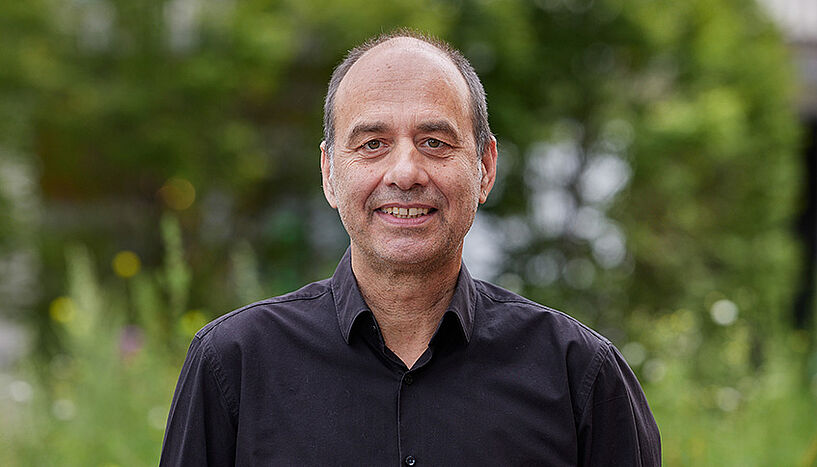
"We are intent on jointly addressing some of the most pressing questions regarding planetary health from the perspective of the microbiome," says Michael Wagner, Scientific Director.
Cluster of Excellence "Microbiomes Drive Planetary Health"
Microbiomes Drive Planetary Health: Under this title, 30 scientists led by microbiologist Michael Wagner from the University of Vienna pool their competences. Together, they aim to understand how microbiomes - specific communities of microorganisms occupying all ecosystems, animals, plants and humans - regulate planetary health. Based on this knowledge, they intend to significantly advance the understanding of global change and solutions for a sustainable future. With their ambitious project, the team was able to succeed in the competitive excellence programme of the Austrian Science Fund (FWF).
Bacteria, archaea, viruses, fungi and protozoa are joining forces as 'microbiome': They are the foundation of the biosphere, regulate global cycles, purify water and air, influence our climate and help us with food production. Microbes live in each and every niche on and in the bodies of plants and animals. Microbial communities are also part of the human body and inhabit the gut. As such, they can prevent diseases, influence the effectiveness of drugs, regulate body weight and (jointly) control our behaviour. How exactly these tiny microbes are doing this, how they function, how they interact with each other and other organisms and how they react to disturbances has not been studied thoroughly yet.
Seven research institutions, a joint aim - understanding the microbiome
To bridge this research gap, 30 scientists from different disciplines are cooperating in a Cluster of Excellence by the Austrian Science Fund (FWF). "We are extremely glad that we are given the opportunity to combine and further develop microbiome research and research on planetary health, two of the most important research areas of the 21st century with our endeavour," emphasises Michael Wagner, Scientific Director of the Cluster. The University of Vienna cooperates in the platform with the Austrian Institute of Technology (AIT), the Institute of Science and Technology Austria (ISTA), the Medical University of Graz, the Austrian Academy of Sciences with the Research Center for Molecular Medicine (CeMM), the TU Vienna and the Johannes Kepler University Linz. "With our Cluster of Excellence, we are creating entirely new synergies by dissolving the boundaries between red and green microbiome research in Austria and, thus, linking medicine and environmental research directly. We want to learn to understand the basic principles of microbiomes to, then, strengthen planetary health by modelling and influencing them in a targeted way," he adds.
For a sustainable future
Michael Wagner and his colleagues from the Centre for Microbiology and Environmental Systems Science at the University of Vienna have done pioneering work in Austria in the area of functional analysis of microbiomes and they have already made ground-breaking findings. In 2015, the researchers pulled off a great coup by describing the comammox bacteria for the first time ever: The discovery of these extraordinary ammonia-eating bacteria led to a change of view on the global nitrogen cycle in microbiological research. It opened up new opportunities for a more sustainable agriculture and waste water treatment.
With their task force on planetary health they are going one step further: If the scientists succeed in decrypting common basic principles of interaction and responses to disturbance in environmental and human microbiomes, we can more accurately predict global change and influence microbiomes in a targeted way at the same time, serving both human and planetary health. "This is indispensable for navigating our Earth towards a more sustainable future," says Michael Wagner. (red)
Michael Wagner is Professor of Microbial Ecology, who has received numerous awards, including an ERC grant, a Schrödinger and Wittgenstein Award. He is Deputy Head of the Centre for Microbiology and Environmental Systems Science at the University of Vienna, of which he was also founding director.






